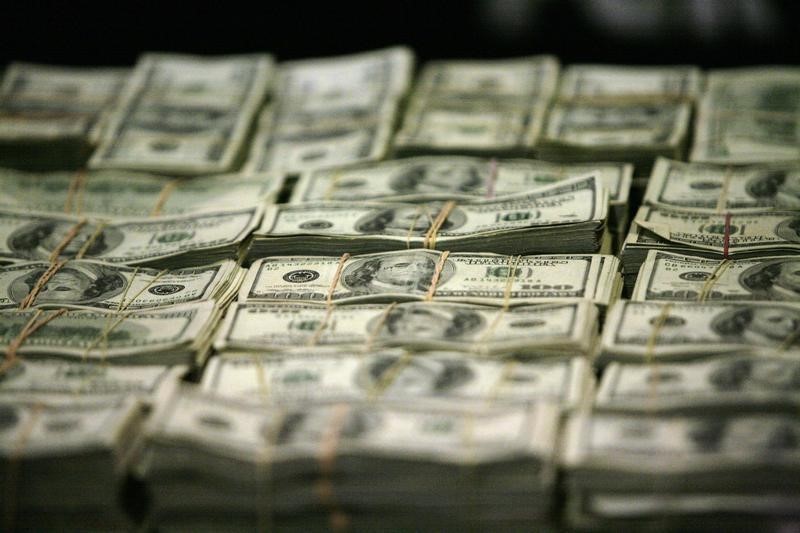Investing.com - The dollar pushed broadly higher against the other major currencies on Tuesday, as dowbeat euro zone inflation data, concerns over Chinese growth and mounting tensions in the Middle East continued to weigh on market sentiment.
EUR/USD was down 1.07% at 1.0715.
The single currency weakened after Eurostat reported that the annual rate of inflation in the euro zone rose just 0.2% in December, matching November’s reading and falling short of forecasts for an increase of 0.3%.
Core inflation, which strips out food and energy costs rose 0.9% in December, below forecasts for 1.0% and matching November’s reading.
The weak data added to pressure on the European Central Bank to step up measures to bolster price and economic growth in the single currency bloc. The ECB targets annual inflation of close to, but just below 2%.
Earlier Tuesday, Germany's Federal Statistics Office said the number of unemployed people decreased by 14,000 last month, better than expectations for a drop of 6,000.
Germany’s unemployment rate held steady at a record low of 6.3% in December, in line with expectations.
USD/JPY slid 0.31% to 119.10.
Demand for the safe-haven yen persisted after data on Monday showed that China’s Caixin manufacturing purchasing managers’ index fell to 48.2 this month from 48.6 in December.
It was the lowest reading since September and was well below the 50-point level which separates expansion from contraction.
Markets were also jittery amid concerns over growing tensions in the Middle East after Saudi Arabia executed a prominent Shi'ite cleric, prompting a retaliatory attack on the Saudi embassy in Iran.
Elsewhere, the dollar was higher against the pound and the Swiss franc, with GBP/USD down 0.50% at 1.4640 and with USD/CHF gaining 0.97% to 1.0119.
Markets shrugged off data showing that the U.K. Markit construction PMI rose to 57.8 from November’s 55.3 and ahead of forecasts for a reading of 56.0.
The Australian and New Zealand dollars were weaker, with AUD/USD down 0.75% at 0.7136 and with NZD/USD lost 1.04% to 0.6683.
Meanwhile, USD/CAD added 0.15% to trade at 1.3974.
The U.S. dollar index, which measures the greenback’s strength against a trade-weighted basket of six major currencies, was up 0.77% at 99.70.
